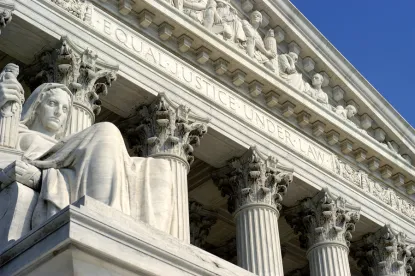Employers who know or suspect that an applicant's or employee's religion may require some accommodation in the workplace cannot use such knowledge or suspicion in making hiring, promotion, or firing decisions, according to the U.S. Supreme Court's recent decision in EEOC v. Abercrombie & Fitch Stores, Inc.
Abercrombie & Fitch refused to hire a woman who wore a headscarf during her job interview. Although Abercrombie never asked the applicant why she was wearing a headscarf, the interviewer suspected that the applicant wore the headscarf for religious reasons, a suspicion that was in fact accurate, because the applicant was a Muslim. Abercrombie refused to hire the applicant because the headscarf would violate its "look" policy that prohibited wearing any "caps" in the workplace.
The Supreme Court found Abercrombie's decision not to hire the applicant on the suspicion that it would need to accommodate her religious practice of wearing a headscarf constituted religious discrimination and violated Title VII of the Civil Rights Act of 1964, as amended (Title VII). The Court held that a job applicant must show only that the need for accommodation was a motivating factor in the employer's decision, and the applicant need not prove that the employer had actual knowledge of the need for such religious accommodation.
The decision established a bright-line test for employers: the Court ruled that "an employer may not make an applicant's religious practice, confirmed or otherwise, a factor in employment decisions." The Court further ruled that if an applicant or employee requires accommodation of a religious practice, and the employer's desire to avoid providing the accommodation is a motivating factor in the employer's decision to not hire the applicant, then the employer violates Title VII.
The Supreme Court noted that unlike the Americans With Disabilities Act, which expressly requires an applicant or employee to prove that the employer actually knew that the applicant or employee required accommodation of a disability, Title VII prohibits an employer from acting on certain motivations regardless of the employer’s knowledge.
The simple upshot of the Abercrombie decision is this: if an employer's decision to hire, promote, or fire is motivated by a desire to avoid a religious accommodation, then the employer violates Title VII's religious discrimination prohibitions.




 />i
/>i
